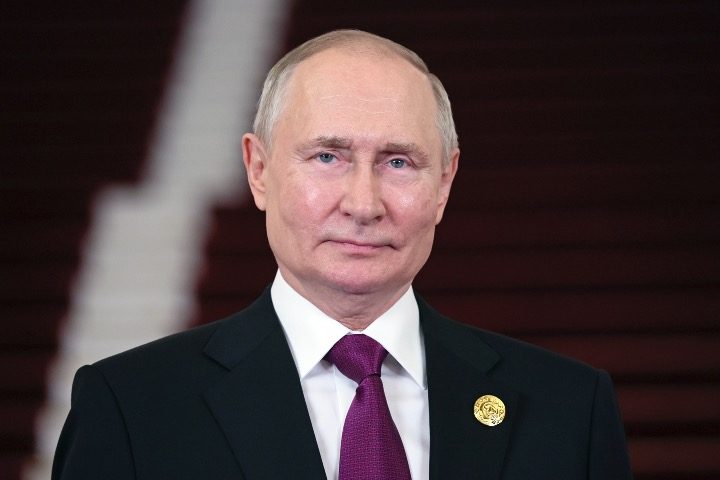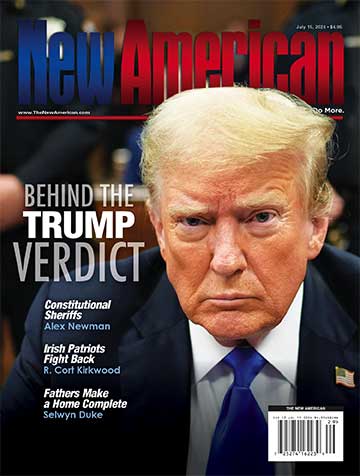
China geared up on Monday, October 16, to host representatives of 130 countries, including Russian President Vladimir Putin, for its Belt and Road Initiative (BRI) Forum from October 17 to 18.
Before the forum, China Media Group anchor Wang Guan managed to get an interview with Putin at the Kremlin in Moscow, Russia. Details of Putin’s interview have been published on the Kremlin’s official website, with a recorded version of the discussion aired on Rumble.
A considerable portion of Putin’s interview focused on Russian-Chinese cooperation, and Putin’s ties with Chinese authoritarian leader Xi Jinping, which he opined has led to the speedy enhancement of bilateral relations over the past 15 years.
Notably, Putin hailed Xi as someone who was “attentive to detail, cool-headed, business-minded and a reliable partner,” highlighting that he particularly valued Xi’s trustworthiness.
Xi’s strategic approach to governance set him apart from “people whom we call ‘time servers’ who are there for a brief moment just to show off on the international stage, and then they are gone,” Putin declared.
He continued:
Our relations (China and Russia) have always been driven by goodwill. It helped us solve the border delimitation issues that had remained outstanding for 40 years. Our shared desire to remove all possible obstacles to our joint progress in future was so huge that we managed to compromise in a mutually acceptable way. And then we began to develop economic cooperation, also gradually, filling the niches that were once owned by other countries in our relations, but were not as effective as our mutual cooperation in a particular area. For instance, in the area of energy that has a special place in our relations. Russia now ranks first among Chinese partners in the supply, for example, of energy to China in value terms.
China progressively became Russia’s first trade partner in terms of trade turnover, and Russia gradually rose to the sixth place among China’s trade and economic partners.
In response to Chinese efforts to provide a political settlement to Russia’s conflict with Ukraine, Putin expressed his views about the Russo-Ukrainian conflict, stating that while Russia hopes the conflict can be resolved and believes that China’s proposal may serve as a starting point, the onus rests on Ukraine to make talks possible, as it has passed a law forbidding talks with Putin:
We are thankful to our Chinese friends for trying to think about ways to end this crisis. However, I would like to remind you that hostilities in Ukraine did not start with our special military operation, but way before — in 2014, when the Western countries, after having volunteered as guarantors of the agreements between [Ukraine’s former] President [Viktor] Yanukovich and the opposition, forgot about those guarantees in a matter of days and — worse still — supported a coup d’état. United States Administration officials even acknowledged spending big money on it — five billion, they said, if memory serves me, — and now we have what was bound to happen.
I am not going to dwell on whether it was a revolution or whether it was a color revolution, but it was anyway a coup d’état. Yes, it had to do with mistakes made by the then leadership, but those mistakes needed to be remedied through democratic procedures, rather than by means of militants in the streets. But Western countries chose otherwise — to support a coup d’état. And then, essentially by proxy of the Kyiv regime, they started hostilities in the south-east of Ukraine, in Donbass, and continued those hostilities for eight years, killing women and children. The West paid no attention to that or pretended not to notice.
Even when agreements were signed in Minsk, Belarus, known as the Minsk Agreements, Russia did everything to follow this path towards settling the conflict. They did not let us do that, either.
“They launched [in June] an active military operation, the so-called counter-offensive,” Putin explained regarding Ukraine’s latest stage of its combat against Russia. “No results achieved so far, only massive losses. The losses are simply huge, at a ratio of one to eight.”
Furthermore, Putin claimed that although China has been reliably keeping its pledges, Russia has lost trust in the United States.
Washington has a penchant for reneging on prior deals based on political whims, as seen with its departure from the multilateral agreement on the Iranian nuclear program, Putin said, pointing out that America displayed a similar problem in Russia’s conflict with Ukraine.
“We were told as far back as 1991 — by the then-US administration — that NATO would not expand further east. Since then, there have been five waves of NATO expansion…. How can we agree on anything if every new administration starts from scratch?”
Blaming America’s attempts to include Ukraine in NATO for Russia’s military operations in Ukraine, Putin opined:
Let me remind you that, when Ukraine gained independence — or proclaimed its independence — it was the Declaration of Independence that served as the fundamental document laying the basis for Ukrainian independence. The main principle enshrined in this Declaration of Independence was that Ukraine is a neutral state.
Yet in 2008, for no good reason — there was no crisis in sight — they announced that they would welcome Ukraine in NATO. Why? Still no one understands. And thus, year by year, they would heighten the tensions. Then, finally, the 2014 crisis hit, the hostilities broke out. This took the escalation to a new level. Therefore, the start of the special military operation was not the start of a war, but an attempt to end it.
Contending that the U.S.-led notion of a “rules-based order” was a pretext for colonialism, Putin posited that Washington determines what those rules are depending on individual cases.
“How can one talk about order based on rules that no one has ever seen? In terms of common sense, it’s nonsense. But it is beneficial to those who promote this approach,” Putin claimed.
The Russian president castigated U.S. exceptionalism, claiming that this mindset means that Americans regard the rest of the world as “second-rate people,” not unlike the colonialists of yore.
Moscow disagrees with such an attitude and hopes for a fair multipolar world, where all nations are deemed as equals, Putin asserted.
He then stated that a new global order was in the works, with this year’s enlargement of the BRICS alliance of leading non-Western countries being a key step in that direction.
“We can speed up this process or someone can try to slow it down and maybe even achieve some kind of reduction in the pace of building a multipolar world. Anyway, its creation is inevitable.”
With the inclusion of six new members, BRICS has exceeded the West’s G7 club in economic strength, Putin noted. “No one wants to play second fiddle to some sovereign, everyone wants equal rights. And when they join BRICS, they see that we can achieve this goal.”



